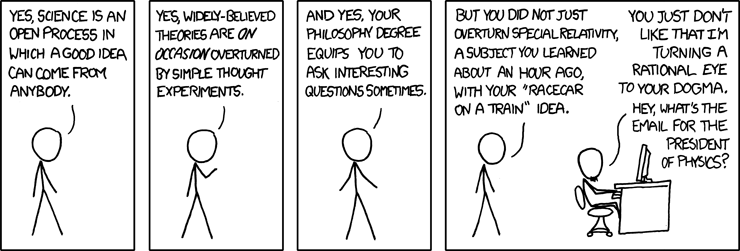More notes from Doug Green… including some more speculative stuff (by his own admission) that was pretty thought provoking. You’ll notice that in order to convey the essence of some sort of characteristic Doug would often add “ness” to the end of a word, and occasionally negate that with an “un”… my spellcheck didn’t really like that so much…
Evangelicals have a low view of what it means to be human even before we introduce the subject of sin. In our unfallen condition we were like God as a son is like his father.
The Fall Stuff – less pretty, and a little more speculative…
We know how the story in Genesis 3 transpires – the “king and the queen” reject their undergodness. The consequences of Adam’s sin have been understood conventionally in expressions like the WCF.
Five things that happened in the fall:
- Exile from God’s presence – there’s an interesting connection between Israel’s story and Adam’s story. Adam and Eve are tossed from the garden – which opens up an interesting insight into the human condition – do we live in a perennial state of homelessness. Sin has rendered us spiritually homeless and homesick. If we’re honest with ourselves even our experiences of being at “home” – family, tribal connections etc – are a longing for a deep feeling of home. Why does it feel so good to be “home”… Psalm 37 – we live out our days in a foreign land… there’s an interesting “human condition as homelessness” notion at play. Fulfillment is found in coming home to God. So Israel, when they return from exile, rebuild the temple. The Prodigal Son is a great New Testament example. Home and family is one of the new gods of Australian culture. But it’s a god destined for failure because humans (and thus families) are sinful.
- The king is dethroned and the son loses his inheritance – the language is of dethronement, of being cast back into humanity. The dethroned king is also the disinherited son (another link to the Prodigal Son – the father is willing to restore the disinherited).
- No longer “like one of us” – take this with a grain of salt… By sinning the first humans fell from the almost godlike status – Genesis 3:22 in the NIV is typical of the received tradition “behold, the man has become like one of us” – it seems to be saying that it was in the fall that we became like God. Which seems to completely contradict this position. Was the serpent telling the truth? When he said “you will become like God” – the Hebrew could be equally translated in the past tense – what he once was – “behold, the man was like one of us, he used to know good and evil. But now he is no longer…” This would be consistent with Genesis 1 – where humanity was created like God. That should have been Eve’s response to the serpent when he said “you will be like God” – “but we already are”… now, because of the fall they’re no longer entitled to the life of the Gods. In Doug’s opinion the serpent tricked both Eve and the translators of Genesis. If this interpretation is correct then the gospel story – the redemption – can be understood as taking us back to being like God. If this is correct then not only did humanity used to be like the heavenly beings but also that status was essential for understanding the difference between good and evil. Everything, under the one word torah, was good – other than disobeying and doing the one thing that God has prohibited. Because they had this “law” they were able to discern between good and evil. What do Adam and Eve have after the fall that would fit into the category of now knowing good and evil?
- After the fall we lose our moral compass and don’t think straight anymore. So. If this interpretation is correct – before the fall, Adam and Eve were like God and able to pick the difference between good and evil. The command gave them the guideline for making this distinction. The serpent lies. They already know. Eve’s response should have been “you’re a liar.” The knowledge of good and evil is something they lose. That is compromised. As a result of the fall. This is part of humanity’s problem – we call good evil, and evil good [ed note – cf Romans 1]. Moral confusion, far from being marks of the true humanity, is a mark of fallen humanity. One dimension of the gospel then will be that through the Spirit, and union with Christ, will realign our moral compass and restore us to full humanity. The sinful nature has damaged our ability to think straight. Similar picture with Jesus and the demoniac – who is insane, and once Jesus heals him, he sits at his feet “in his right mind”…
- It results in the loss or reduction of our original glory – “the Lord God made garments of skin” – traditionally understood as requiring an animal sacrifice (which has been read in as atonement). God’s clothing of Adam and Eve is a symbolic act of changing their cultural status. A big deal in ancient culture – clothing carries symbolism of a change of status (white wedding dress). Clothing the man in skins may be the Lord identifying them with the animals. They become more like animals than gods. They’ve lost their godlike status and their new status is more like the animals. A stretch. Sure. But so is the atonement reading. Daniel 4 – one of the consequences was being dethroned as king, throughout the OT there are stories of kings being dethroned that are framed as a retelling of the Adam story. When you read them this way they can give us some insight into the human condition. So the story of Nebuchadnezzar is an example – what do you do when you have worldwide dominion? You wander around looking at what you’ve done – this is a picture of a king who thinks he rules the world. It’s arrogance and hubris. The words are still on his lips when a voice comes from heaven – “your royal authority has been taken from you” – echoing Adam’s dethronement. You will be “exiled from people” and will “live with the wild animals” until he recognises that he is not God. The description of Nebuchadnezzar is beastly – he has become an animal. He moves from the pinnacle of human experience, glorifying in his achievements to the humiliating state of “an animal” – this is the human story. We’ve moved from royalty to being beastly. Nebuchadnezzar’s redemtion is a gospel story – his sanity is restored, he praises the most high, he puts himself under God’s authority, he ends up in a better place (good, bad, better – the redemption cycle). Redeemed humanity is elevated from a beastly humanity to a humanity that exercises dominion – back to where we should be, but possibly in a better place than we began in. The transformation comes when we recognise God as God. True humanity will rule creation, rather than being a ruled over creature, only when we recognise God. Nebuchadnezzar “my knowledge, my understanding, returned to me” as a result of submitting. Sin makes us insane. The good news is that Christ makes us sane.
Romans 3:23 – because we’ve sinned we now fall short of the glory of God that attached to us as unfallen humans (rather than being a case of missing God’s standard of perfection). Psalm 8 – for all have sinned and we no longer have our heavenly nature. We are “falling short” humans.



